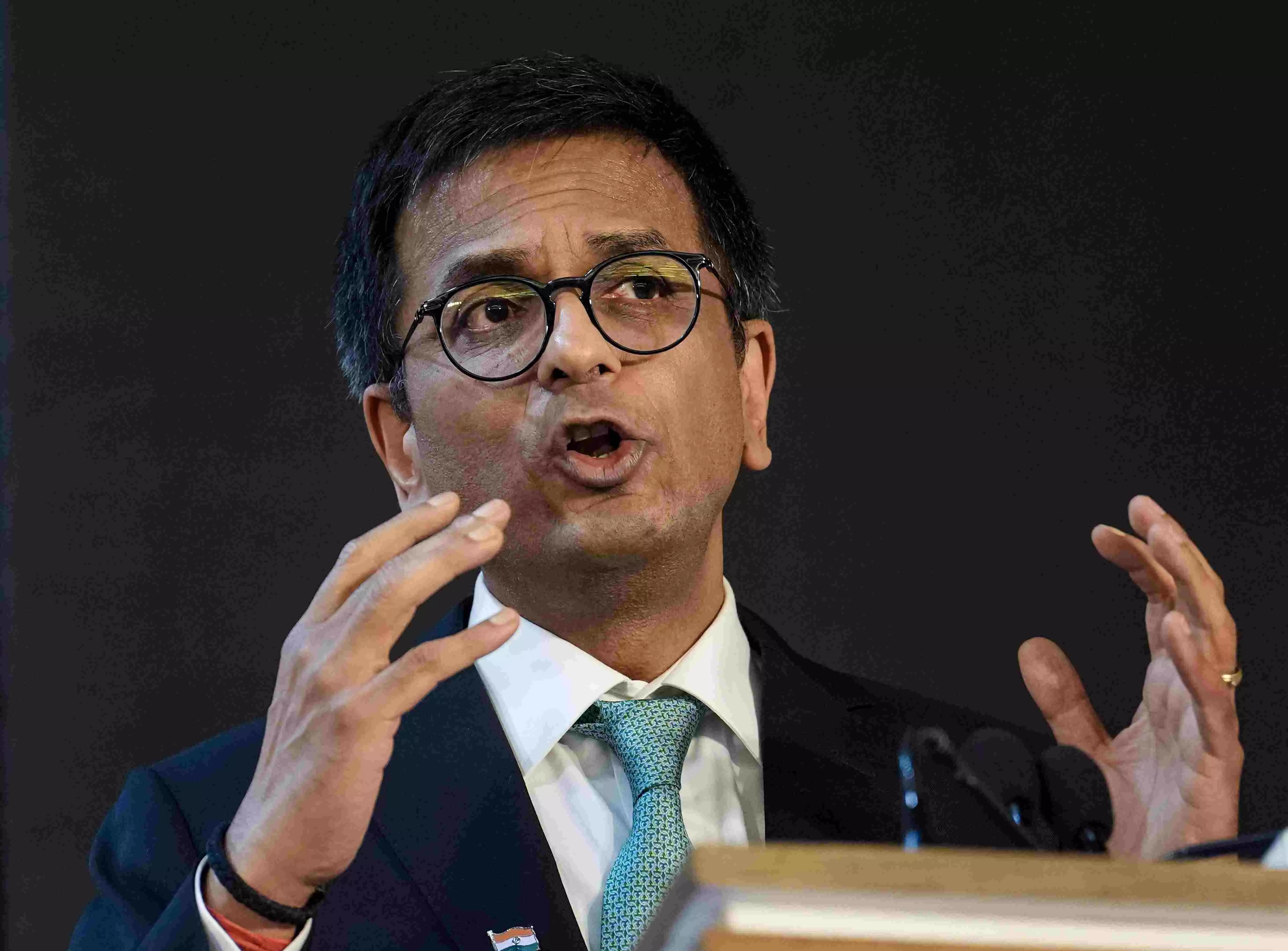There is constant tussle about who will get ultimate control over appointment of judges: CJI

Mumbai: Chief Justice of India D Y Chandrachud said here on Friday that there is a constant tussle about who will get ultimate control over appointment of judges even as vacancies arise and appointments are kept pending for a long period of time.
He was speaking at the inauguration of the new premises of the Mumbai bench of the Central Administrative Tribunal (CAT).
CJI Chandrachud said tribunals in the country play a very important role in helping unclog delays in courts and in aiding the overall dispensation of justice.
"One of the objectives of tribunals was to combat and battle the delays faced by our courts and it was hoped that these tribunals, which are untethered by strict rules of evidence and procedure, would help unclog the courts and aid overall in the dispensation of justice," he said.
However, our tribunals are by and large plagued with problems and then we ask ourselves was it really necessary to constitute so many tribunals, he added.
"Because you do not get judges, when you get judges, vacancies arise which are kept pending for a long period of time and then there is this constant tussle about who will get ultimate control over appointment of judges," CJI Chandrachud said.
He said the members of the bar and bench (lawyers and judges) in Maharashtra should not forget the favourable conditions in which they work as opposed to the rest of the country as there is a culture of governance here.
"There is a culture of governance where the government successfully has left the judiciary alone. They do not tinker with the work the judges do. They accept outcomes that are favourable they accept outcomes that are unfavourable because that is the culture of Maharashtra," CJI Chandrachud said.
He added that any Mumbaikar would testify to the troubles of securing a space in Mumbai.
"Very often we forget the importance of the work that the government does in aiding and supporting the judicial infrastructure," he said.
The CJI also emphasised the need to make courtrooms more accessible to differently-abled persons.
He added that technology cannot become the sole medium to access justice, and physical access to courts can never be understated and hence must be constantly improved.
Our infrastructural advances must be guided by the objective of accommodating people with diverse needs from diverse segments of our society, the CJI said.
"A well-maintained and accessible infrastructure can enhance the public's confidence in the state's ability to meet not only their legal needs but also account for their comfort as they navigate through the complexities of these daunting legal journeys," he added.
The CJI said that the tribunals have assisted not just the courts in the country but also the litigants.
"A rightful but weary pensioner or a wrongly terminated single mother may not withstand a long and winded litigation as well as outlast her much more powerful opponent, usually the State, in a long winded legal tussle," the CJI said.
The very existence of an administrative tribunal is premised on its ability to make this journey less onerous for the litigants in matters of public employment, he added.
CJI Chandrachud said recently a report was prepared by the Centre for Research and Planning, which highlights the infrastructural gaps of judiciary.
"The report found that for a sanctioned strength of 25,081 judges in the district judiciary, there is a shortage of 4,051 courtrooms. Notably, 42.9 per cent of the total courtrooms have been under construction in the last three years," he said.
The CJI said there are many barriers that stand in the way of access to justice for many, and said the inability to get a timely outcome may impact each person differently.
"In a society that associates intellect and calibre with gender, the impact of delay will be greater for a woman lawyer than a male lawyer. She is not just fighting her immediate opponent in the courtroom but also combating years of gendered perceptions about her innate ability to be a lawyer," he said.
At a certain level, we feel that delay impacts everybody equally, but that is not so, the CJI said, adding that it has a disparate impact on everyone.
"Women, however, have been performing against all odds in the legal profession in India. As per a judiciary report, out of 16 states that recently conducted recruitment for civil judge junior level, 14 states had more than 50 per cent selection of women judicial officers," the CJI said.
"Therefore, our processes and infrastructure need to be more architecturally inclusive to address the challenges as well as the changing composition," he added.
CJI Chandrachud gave an example of when he and his colleague Justice Abhay Oka went on a visit to Kolhapur district as administrative judges where the district court did not have toilet facilities for women judges.
"I am talking of a few years ago not decades ago. That was the reality of even a developed state as we call our own state of Maharashtra. So this is something that we really need to look at," he said.
"It is no answer to a wheel-chair bound person, a senior citizen or a lactating mother for our courts to tell them that our courts are better experienced online. The litigant alone must have the choice of how they want to access the courts," he said.



